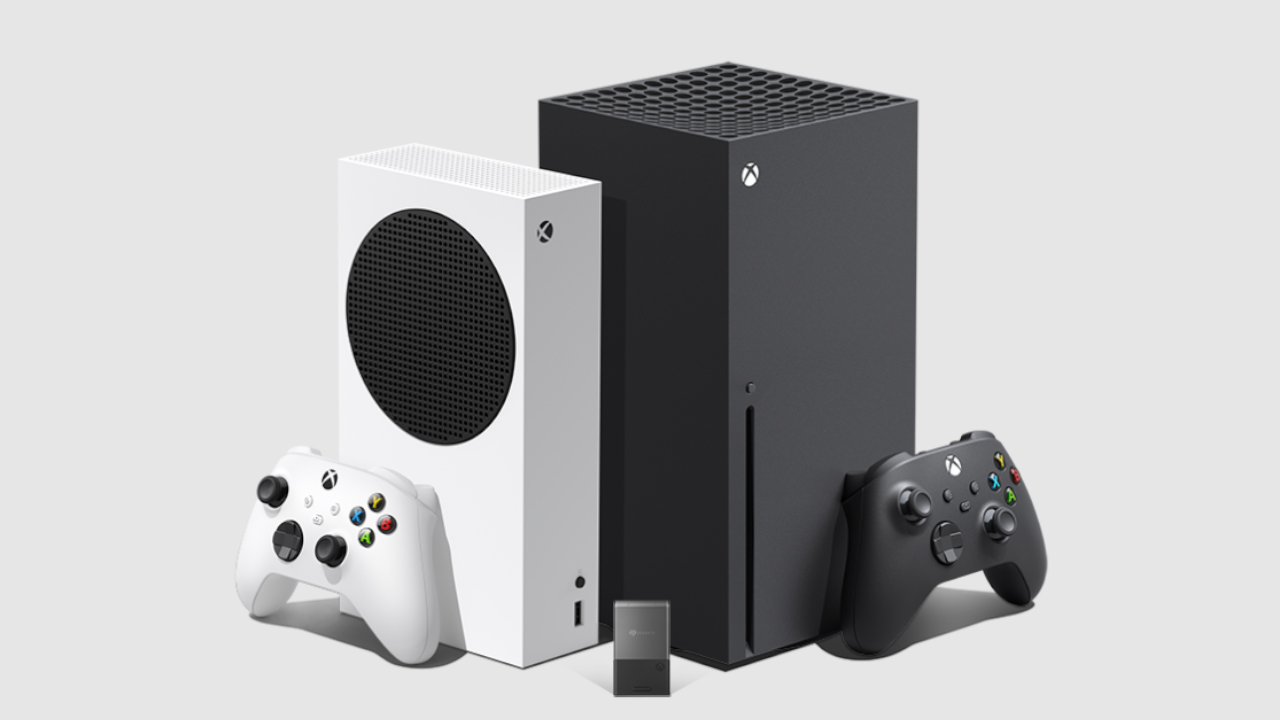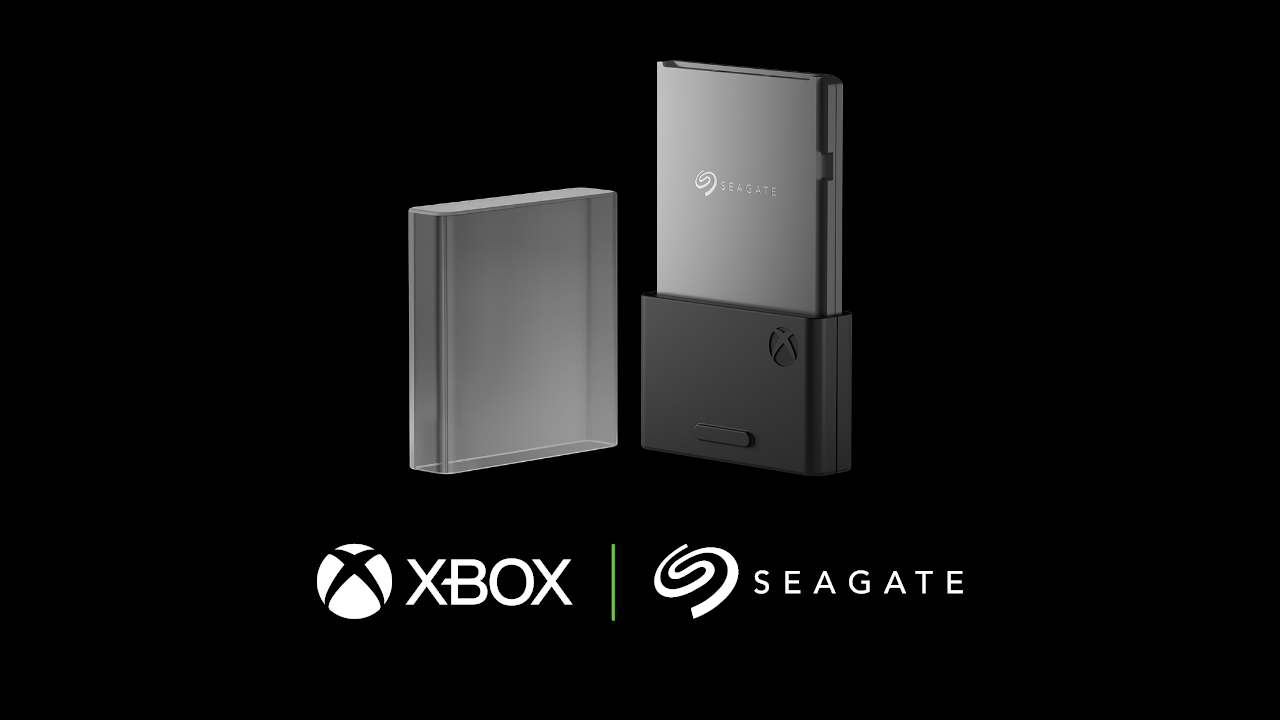Xbox Series X expandable storage guide – all of your options explained
The Xbox Series X and Xbox Series S expandable storage options explained in a handy guide


The Xbox Series X is launching on November 10 alongside its digital-only counterpart, the Xbox Series S.
The Series X has a sizeable 1TB hard drive while the Series S has a smaller 512GB, and given that the size of next-gen games are almost certainly going to be bigger than the current-gen, upgrading your console's storage is something you'll inevitably be looking into at some point after you've picked one up.
Sony's PS5 is in the same boat, with the file size of just a couple of games revealed to take up 20% of the 825GB hard drive, and we foresee the paltry 512GB of the Series S running into problems too.
Both pieces of hardware have their own solutions, and Microsoft has expanded on this to clear up any confusion before launch.
- PS5 pre-orders: Third wave of PlayStation 5 pre-orders incoming!
- PS5 and Xbox Series X pre-order bombshell drops 💣
- Nokia 8.3 5G review: one of the most affordable 5G phones
- PS5’s supercharged secret weapon smokes Xbox Series X

The Xbox Series X and Xbox Series S are both compatible with USB 3.1 HDDs but you've no doubt also heard about the Seagate 1TB SSD designed in collaboration with Microsoft that's been revealed to have a price tag of $219.99/ £220/ €270 and between AU$360 - $380.
Microsoft's director of program management, Jason Ronald, has explained both options as well as any limitations, so you know what to go out and buy – and if you need to go and buy anything at all, depending on what you're after.
You can take a glance at the table above, or read on for a more in-depth breakdown.
Get all the latest news, reviews, deals and buying guides on gorgeous tech, home and active products from the T3 experts
USB 3.1 HDD
You can use a USB 3.1 HDD to store next-gen games for quick and easy transfer, and it's plug and play compatible with both the Xbox Series X and Xbox Series S. So any USB 3.1 HDD you're using today with your current console will be just fine to use with the new hardware.
As Microsoft points out, "support for high speed USB 3.1 storage was important to make the storage and transition of large game libraries easy and accessible to everyone."
Xbox's social media manager Josh Stein gives the following example using his own plans:
"For me, gonna store most games on the beefy HDD then just transfer to internal SSD my current active games (transfer is very fast). Lots of ways to play & the Seagate card is just another option to expand even more!"
When it comes to the Quick Resume feature, which is powered by Xbox Velocity Architecture, it doesn't matter if you're playing a game from the internal SSD, Seagate Storage Expansion Card, external USB 3.1 HDD or SSD drive. Roald explains that "game state data is persisted on the internal SSD" so you won't have to worry about that.
Quick grid on understanding how storage will work on your X|S.For me, gonna store most games on the beefy HDD then just transfer to internal SSD my current active games (transfer is very fast). Lots of ways to play & the Seagate card is just another option to expand even more! https://t.co/ITZWDI4okxSeptember 29, 2020

Storage expansion card
Microsoft's new consoles contain a custom NVME SSD so you can't just use any off the shelf solution, like you can with the PS5 (although compatible SSDs will need to certified in Sony's case).
At the moment, there's only one option available – the Seagate Storage Expansion Card for Xbox Series X. You just plug it into the port on the back of your machine, and you're good to go.
The SSD has been designed using the Xbox Velocity Architecture API, meaning it delvers the same performance as the consoles' internal SSD. The Xbox Series X/S Quick Resume feature will also work with the card, as it's powered by the Velocity Architecture, and "game state data is persisted on the internal SSD," so it doesn't matter where you're playing your game from.
You can use the SSD to install games, move or copy games between local and external storage, play games straight from it, and "do anything you already do today with an external hard drive."
Comparing game storage on the SSD to games on disc or digital format, Ronald explains says that it works much the same way as on the Xbox One:
"When you insert a game disc, the game data is installed to the internal SSD or expandable storage. When you play the game, the game runs directly from local storage, but you must still have the disc inserted as the disc provides the license for the game."
Any backwards compatible games from the Xbox One, Xbox 360, and original Xbox can also be played from the SSD, and you'll see the same improvements to load time and performance that you would playing them from the internal SSD.
- Lupe Pure review: cordless Dyson rival may look cute, but it sucks like a brute
- iPhone 12: release date, price, specs, and more on Apple's next iPhone
At the moment, the Seagate Storage Expansion Card for Xbox Series X|S is the only expandable storage solution for the Xbox Velocity Architecture, but Ronald says that Xbox is "continuing to invest in the Expandable Storage category" with a view to offering gamers a wider choice, "including additional capacities and implementations in the future."
On the topic of the storage card's price, he explains that this is simply down to fact that the "advanced components" required to deliver the appropriate level of "consistent, sustained performance" is more costly that the standard options on the market.
The Seagate Storage Expansion Card for Xbox Series X|S is available for pre-order now, and launches alongside the Xbox Series X and Xbox Series S on November 10.
- Best Christmas gifts: inspirational present ideas for everyone

Shabana worked at T3.com as News Editor covering tech and gaming, and has been writing about video games for almost a decade (and playing them since forever). She's had bylines at major gaming sites during her freelance career before settling down here at T3, and has podcasts, streaming, and video content under her belt to boot. Outside of work, she also plays video games and should really think about expanding her hobbies. If you have any tech or gaming tips, shoot over an email or DM her on social media.